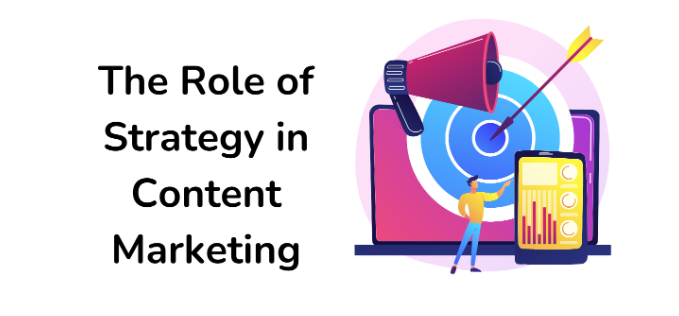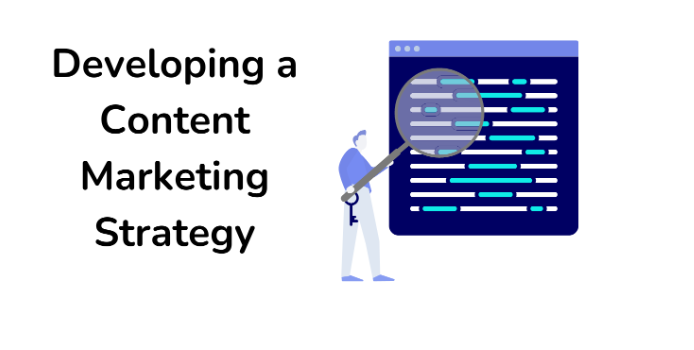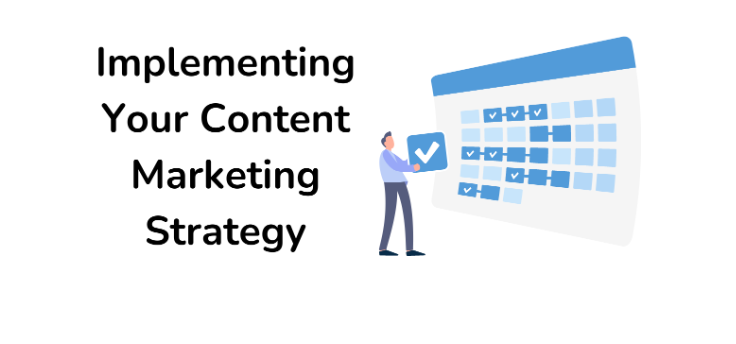
In the dynamic field of digital marketing, content has always been king. But merely producing content is not enough. Strategizing the content production, distribution, and evaluation is the key to success. In this article, I’ll explore the strategies for a successful content marketing campaign.
First, it’s important to have an understanding of what content marketing really is. Let’s dive into it.
Understanding Content Marketing
Content marketing is a strategy within digital marketing that involves creating and distributing valuable, relevant, and consistent content to attract and engage a specific audience. Ultimately, the goal is to lead that audience toward a profitable customer action.
But what exactly does content marketing entail? Let’s dive deeper into the definition and importance of this powerful marketing approach.
Definition of Content Marketing
Content Marketing Institute, the leading global content marketing education and training organization, defines content marketing as “a strategic marketing approach focused on creating and distributing valuable, relevant, and consistent content to attract and retain a clearly-defined audience — and, ultimately, to drive profitable customer action.”
In simpler terms, it means providing the audience with content that is educational, inspirational, or entertaining, with a view to build strong relationships and instilling trust over time. By consistently delivering valuable content, businesses can establish themselves as industry leaders and go-to sources of information.
Content marketing is not just about creating and disseminating information; it’s about creating a conversation with potential customers. By providing value through content, businesses can build relationships and establish themselves as trustworthy authorities in their respective fields. To maximize the impact of your digital presence, consulting a content marketing agency can help create tailored strategies that resonate with your audience. Consistent, high-quality content not only drives traffic but also fosters long-term engagement and customer loyalty.
The Importance of Content Marketing
Effective content marketing goes beyond simply producing and sharing content. It has numerous benefits that can significantly impact a business’s success.
Firstly, content marketing can generate more inbound traffic to your website. By creating valuable and relevant content, businesses can attract potential customers who are actively searching for information or solutions. This increased traffic can lead to higher conversion rates and ultimately drive profitable customer actions.
Moreover, content marketing allows businesses to engage with their audience in a meaningful way. By providing valuable content, businesses can create a dialogue and build trust with their target audience. This engagement can lead to increased brand loyalty and customer retention.
Additionally, content marketing is a long-term strategy that, when implemented correctly, can provide a much higher return on investment compared to other marketing tactics. By consistently creating and distributing content, businesses can establish themselves as thought leaders and attract a loyal following, resulting in increased brand awareness and customer loyalty.
In conclusion, content marketing is a powerful strategy that can help businesses attract, engage, and convert their target audience. By providing valuable and relevant content, businesses can establish themselves as industry leaders and build lasting relationships with their customers. So, if you haven’t embraced content marketing yet, now is the time to do so!

The Role of Strategy in Content Marketing
A thoughtfully designed content marketing strategy is the backbone of any successful content marketing campaign. It goes beyond simply creating and distributing content, and instead focuses on aligning your efforts with your overall business objectives. Let’s dive deeper into the significance of strategy in content marketing and explore the key elements that should be encapsulated within it.
Why Strategy is Essential in Content Marketing
Without a strategy, content marketing can quickly become a haphazard effort. It’s like shooting in the dark, hoping to hit the target. A well-thought-out strategy, on the other hand, ensures that your content aligns with your brand, targets the right audience, and ultimately achieves your desired business outcomes.
One of the main reasons why strategy is crucial in content marketing is that it helps in setting the path for the customer’s journey. By carefully planning and mapping out your content, you can guide your audience through the various stages of their purchasing process. From the initial discovery of your brand to the consideration of your products or services, and finally, to the purchase phase, a good strategy paves the way for a seamless and effective customer experience.
Key Elements of a Successful Content Marketing Strategy
An effective content marketing strategy is composed of several key elements. These elements work together to create a cohesive and impactful approach to content creation and distribution. Let’s take a closer look at each of these elements:
- Defining your goals: Before you start producing content, it’s crucial to know what you want to achieve. Setting clear and measurable goals allows you to track your progress and determine the success of your content marketing efforts.
- Understanding your audience: Knowing your audience is essential for creating content that resonates with them. By understanding their needs, preferences, and pain points, you can tailor your content to address their specific concerns and provide value. This understanding also enables you to develop a strong brand voice that appeals to your target audience.
- Creating engaging content: The heart of content marketing lies in creating content that captivates and engages your audience. Your content should be informative, insightful, and entertaining, providing valuable information or solving a problem for your audience. By offering high-quality content, you can establish your brand as a trusted authority in your industry.
- Distributing content effectively: Creating great content is only half the battle; you also need to ensure that it reaches your intended audience. Effective distribution involves selecting the right channels and platforms to reach your target audience, whether it’s through social media, email marketing, influencer partnerships, or other means. By strategically distributing your content, you can maximize its reach and impact.
- Monitoring and tweaking your strategy: Content marketing is an ongoing process that requires constant evaluation and adjustment. By monitoring the performance of your content, you can identify what works and what doesn’t, allowing you to make informed decisions and refine your strategy over time. Regularly analyzing metrics such as engagement, conversions, and audience feedback helps you stay agile and adapt to changing market trends.
By incorporating these key elements into your content marketing strategy, you can create a solid foundation for success. Remember, a well-executed strategy not only helps you achieve your immediate goals but also sets the stage for long-term growth and brand development.

Developing a Content Marketing Strategy
Crafting a strategic approach to creating and distributing content requires a meticulous process. Let’s dissect it.
When it comes to developing a content marketing strategy, there are several key steps that you need to consider. These steps will help you effectively reach your target audience and achieve your marketing goals.
Identifying Your Target Audience
Knowing your target audience is crucial in devising a content marketing strategy. This understanding enables you to create content that appeals to them. It also helps in delivering the content via the most effective channel and at the most appropriate time.
Start by creating audience personas – semi-fictional representation of your ideal customers. Consider demographics, interests, buying habits, challenges, and pain points. By understanding your target audience on a deep level, you can tailor your content to meet their specific needs and preferences.
For example, if your target audience consists of young professionals who are interested in fitness and wellness, you can create content that provides tips and advice on healthy living, exercise routines, and nutrition.
Setting Clear Goals and Objectives
Next, outline the goals and objectives you want to accomplish. Whether it’s to drive more traffic to your website, increase brand awareness, or improve conversion rates, having clear objectives will guide your content creation efforts.
A robust system of goals and objectives not only provides clear direction, but also supplies the metrics by which to measure and assess performance. This allows you to track the success of your content marketing strategy and make adjustments as needed.
For instance, if one of your goals is to increase brand awareness, you can set a specific objective to achieve a certain number of social media shares or mentions. By regularly monitoring these metrics, you can determine the effectiveness of your content in reaching your target audience and generating brand visibility.
Choosing the Right Content Types
The type of content you create largely depends on your target audience and your goals. Blogs, videos, infographics, podcasts, or e-books, you need to choose what best resonates with your audience and serves your objectives.
Different types of content have different strengths, and using a mix can help reach a wider audience and fulfill varied marketing objectives. For example, if your target audience prefers visual content, incorporating videos and infographics into your content strategy can be highly effective.
Additionally, consider the different stages of the buyer’s journey. Attracting new leads may require informative blog posts or engaging videos, while nurturing existing leads may involve sending out e-books or hosting webinars.
By carefully selecting the right content types, you can effectively engage your target audience and guide them through the customer journey.
Developing a content marketing strategy is a complex process that requires careful planning and execution. By identifying your target audience, setting clear goals and objectives, and choosing the right content types, you can create a strategy that resonates with your audience and drives meaningful results for your business.

Implementing Your Content Marketing Strategy
Once you have a strategy in place, it’s time for action. Bring your content to life and disseminate them to your target audience. Here’s how.
Creating High-Quality Content
Regular production of high-quality, relevant content is a must. Engage your audience with interesting articles, insightful infographics, compelling videos, and more. Remember, the focus should be on providing value rather than making hard sells.
Quality beats quantity any day. Instead of flooding your channels with mediocre content, invest time and effort in creating fewer, exceptionally well-crafted pieces.
Promoting Your Content Effectively
The best content won’t make any difference if it’s not reaching the right people. Use search engine optimization (Try out my SEO Services), social media, email marketing, and other avenues to get your content in front of your target audience.
Proactive content promotion is a must as you can’t just rely on organic traffic. Utilize both free promotional strategies and paid advertising for optimal results.
Measuring and Adjusting Your Strategy
Finally, be ready to adjust your strategies based on the performance of your content. Monitor your analytics, identify what works and what doesn’t. Then make the necessary adjustments to improve your content marketing strategy.
Remember, achieving success in content marketing is a continual process, not a one-time event. Regularly reviewing and adjusting your strategies can lead to dramatic improvements over time.
Author Bio:

I am an SEO specialist and an academic teacher. I set up my first website in 2016. Since then, I have been interested in SEO and internet marketing. On a daily basis, I use interdisciplinary knowledge of SEO and combine it with knowledge of psychology and marketing. I enjoy growing professionally and as a person. I am open to new experiences and I like to benefit from them for the future.





